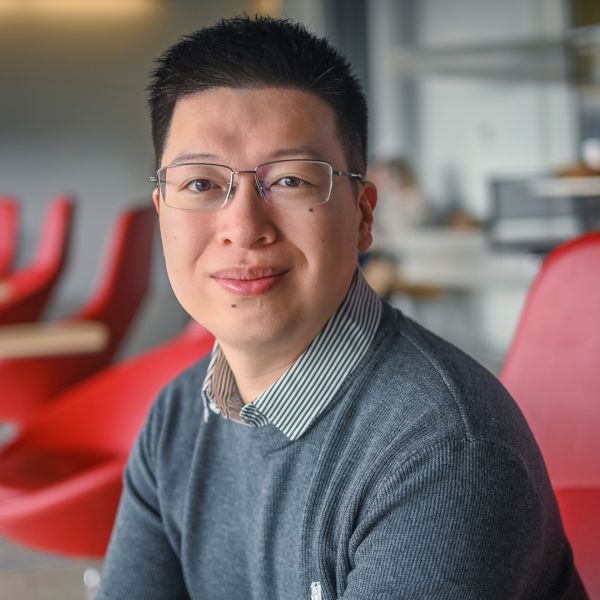February 27, 2024
By Louis DiPietro
“The science of science” is a quizzical, albeit accurate, description of Yian Yin’s research.
An assistant professor of information science in the Cornell Ann S. Bowers College of Computing and Information Science, Yin uses mathematical and computational methods to mine data and examine the factors that help (or hinder) scientific research and innovation.
“Science, technology, and innovation are the ultimate drivers of economic growth, but despite centuries of research on all kinds of things, it is indeed intriguing that we haven't really looked into the development of science in a scientific way,” Yin said.
Yin approaches the science of science as an interdisciplinary researcher in an interdisciplinary field – he’s a computational social scientist, a network scientist, an industrial engineer, and applied mathematician.
And he is a recent addition to the Forbes 30 under 30 Science list.
Here are some examples of Yin’s work: He has measured the usefulness of public funds that support scientific research; explored the co-evolution of policy and science, using the COVID-19 pandemic as a guide, and studied the dynamics of failure to better understand success.
These same methods used to study the science of science, he said, also provide a unique lens to examine broader issues like climate change, fake news, privacy, and security.
Then, there are other research initiatives that, Yin jokes, have partly self-serving ends. Through quantitative analysis, he is challenging some of the assumptions about career success among scientists.
“I want to become a great scientist, so I want to understand, what are the patterns of a successful scientific career? When do people make their best work? How do scientific ideas spread within and across a scientific community?” Yin said. “These are valid research questions, but they’re also questions I’m generally interested in.”
Take, for instance, his analysis of the career histories of nearly 550 Nobel Prize recipients. Did their career arcs differ from the majority of scientists’? No, Yin found.
“They share many career patterns that are similar to us, which I interpret as an encouraging signal,” he said.
His research has been covered in publications like Forbes, Scientific American, The Atlantic, Harvard Business Review, and MIT Technology Review.
This past fall was Yin’s first official semester as a Cornell professor. He co-teaches “Networks,” an interdisciplinary course cross-listed in four departments that draws students from across diverse fields.
“This is a very big class” – more than 400 students – “and some people may see the class as challenging,” he said. “But talking about things I'm really excited about to hundreds of people three times a week, I actually see it as a privilege. I love the interactions.”
Leading Cornell’s Networks course has significant meaning to Yin. He was an undergraduate studying statistics and economics at Peking University in China when, less than enthused with the prospects of a career in abstract mathematical theory, he randomly attended a seminar led by a network scientist. The lecturer explained that patterns of human communication and connection could be found when turning mathematical and computational processes loose on messy data. That day, Yin became a network scientist. He pored over the seminal book on networks – “Networks, Crowds, and Markets: Reasoning About a Highly Connected World,” written by Cornell professors David Easley and Jon Kleinberg. Today, Yin co-teaches that same course with Easley, using the original duo’s pioneering text.
“It’s a kind of cycle for me – I learned from these two scientists, and I’m now teaching the Networks class they led and paying it back to a broad community,” he said. “It’s an honor.”
Looking ahead, Yin is most excited about collaborating with researchers in Cornell Bowers CIS and across the university.
“This is the campus I want to be on,” he said. “As a network scientist and a science-of-science researcher, I feel Cornell is not one of, it is the campus where I want to be.”
Louis DiPietro is a writer for the Cornell Ann S. Bowers College of Computing and Information Science.



